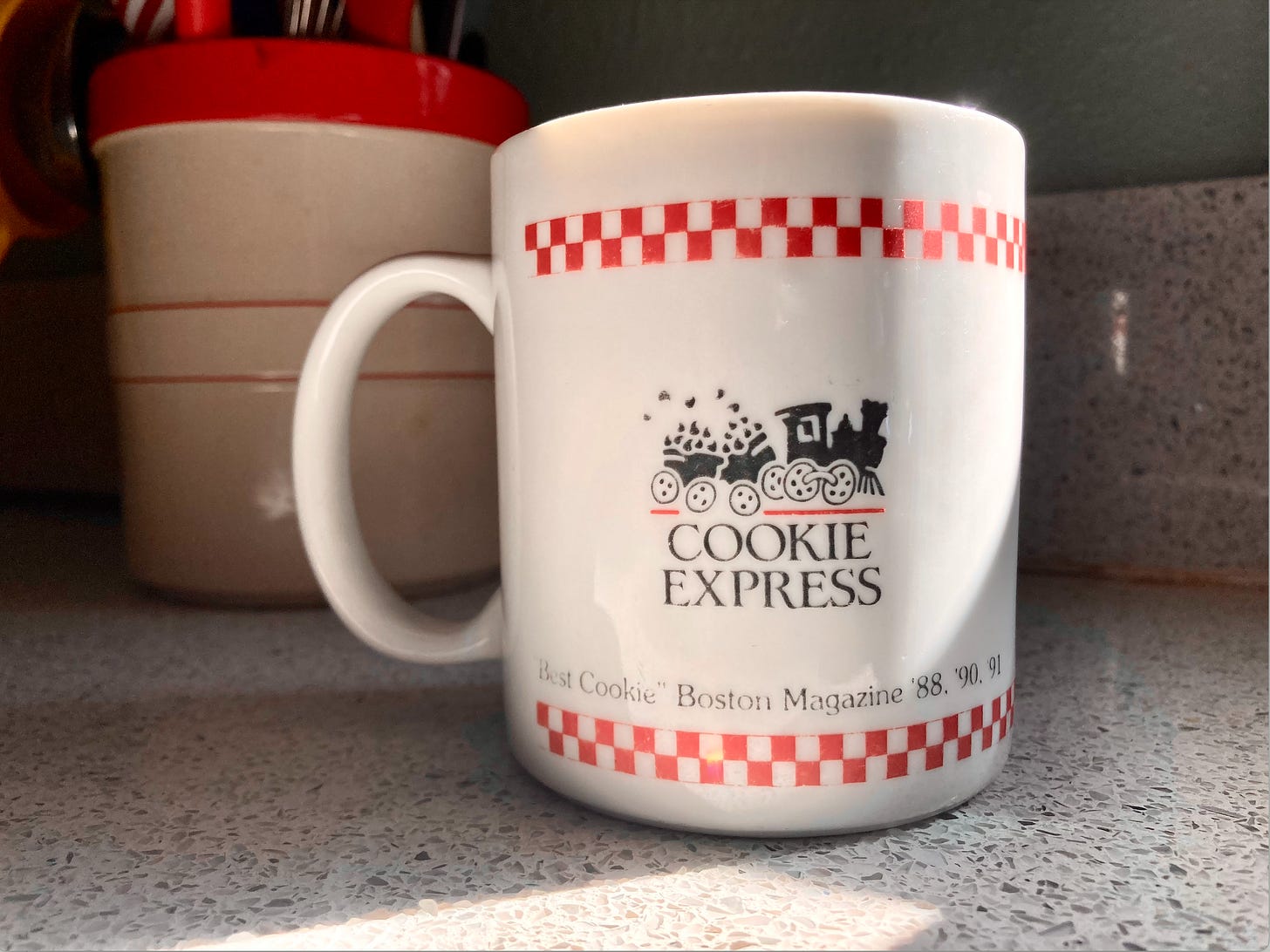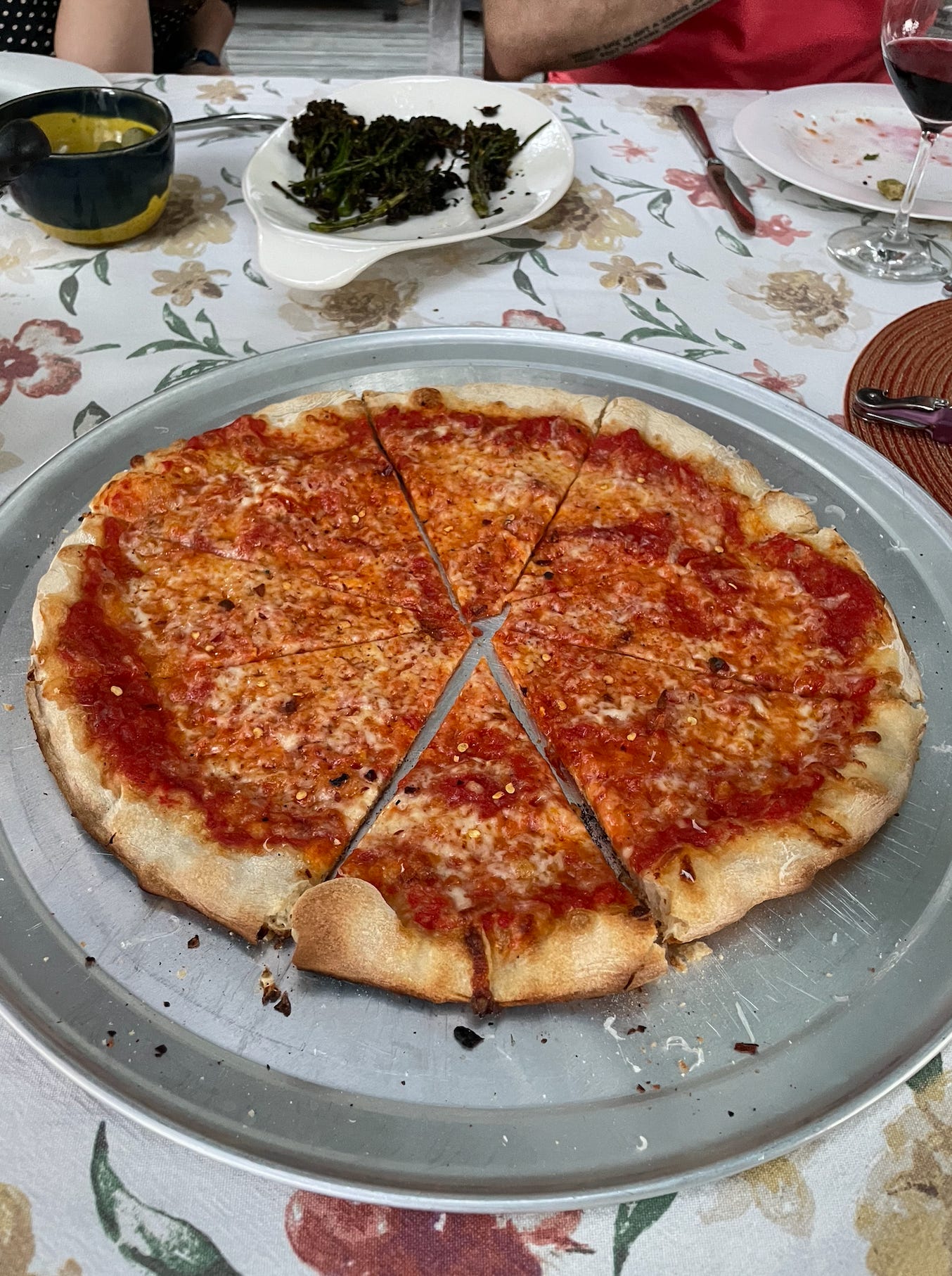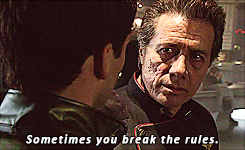Baking Bread
How to trust your decisions.
My parents owned a small cookie company for 25 years (and today, after a failed attempt at retirement, they own Blacker’s Bakeshop in Boston). I worked on and off for them from the time I was about twelve until I was maybe twenty. There was a time when I couldn’t successfully bake a dozen cookies in my home oven because I could only make a thousand cookies in an industrial oven.
All of which is to say: baking is in my blood.
I started making pizza at home maybe five years ago. Baking-wise, I was confident in cookies, cakes, and pastries. I hadn’t really made bread before. My first pizzas were a mess of over- or under-cooked crust, toppings overloaded, oven too hot, the baking stone turning the pizza’s underside black. I tried different recipes from different books and websites. Some had oil, some had none.
Almost every new bake was better than the one preceding it. I found a base recipe I like and learned how to manipulate it for my oven. I tried stones and steels and baking trays before deciding that I like the stability of a baking stone, even if it takes a few minutes longer to bake. I started meeting with my friends Mickey Fisher and Heath Corson, both of whom started making pizza around the same time as me, for a “Pizza Club” in which we’d compare notes and try the new crop of incredible pizzas places that were suddenly popping up around LA.
(For the record: before the LA pizza boom of the past few years, Village Pizza was my favorite, classic style pizza; Mozza is, of course, the quintissential LA-style pizza. Now, I think that Quarter Sheets is LA’s absolute best homegrown pizza and, hands down, QS’s Hannah Ziskin is the city’s best pastry chef. BUT, room must be made for Chris Bianco’s Pizzeria Bianco, which just opened downtown and is absolutely incredible. Still, he’s from OUT OF TOWN, so.)
All of which is to say: it’s a process.
I’ve been doing some consulting with new writers, something I absolutely love doing.1 On my last call with one consult, a writer with whom I’d been working for several months, she asked a question that has come up a lot lately in the Q&As we’ve done here at Re:Writing: How do you know when you’ve made the right story decision? And, along with that: How do I know when my script is ready?
I didn’t have a good answer for the writer other than to say “You just know.” Knowing that’s not nearly good enough, I tried to communicate that when you’ve done it enough, when you’ve put in the pages and the hours, then you can just feel it working. And you can trust those feelings because you’ve done it enough.
It reminded me of a similar conversation I had with my wife just the week previous. We’d watched something in which the scenes were kind of… bloodless. Characters were just stating exposition. It was all underbaked. Julie isn’t a writer, and she was asking how that can happen. How can you make sure that your scenes are working so you don’t end up like that. And, again, I didn’t have a good way to explain it except to say that you have to feel the scenes, they have to feel true, that there has to be blood and emotion in them.
None of which is helpful.
My consult and I moved on from that conversation and were, at a certain point, just shooting the breeze. She mentioned that she bakes bread, and she helped me arrive at the perfect analogy for “how you know when it’s working.” We talked about how she knows when a bake is going to come out well. It’s because she knows what she’s looking for. How it’s supposed to smell and feel.
It took me a hundred pizza making sessions before I could know, just from mixing the dough, if a pie was going to come out. I could tell if the dough was smooth and elastic. I could tell if it sat somewhat eagerly in the bowl when I put it in the refrigerator to proof overnight. When I changed recipes (I use Bianco’s now, which is terrific) and technique (I built my grill into a little pizza oven), it was another learning process. But I built upon what I’d done previously, and the curve was sharper.



You learn by doing. There are no tricks. There are no secrets. You find out what works by finding out what works.
By 2015, when I interviewed Diane Ruggiero for The Writers Panel, she’d been a working writer for over a decade. She’d been on Veronica Mars since its first season and was launching iZombie, which she co-created with VM’s Rob Thomas. And even then, she said, “I have to constantly remind myself that I’m so much better with time. I look at pilot changes that I didn’t want to make that I now think, I would make change that in a second. That scene can go. We don’t need even that character.”
It’s “an acquired skill,” C. Robert Cargill (The Black Phone) said in our recent Q&A.
It is something that you will really learn over time. The secret is to allow yourself to become not precious, but not jaded. It’s a hard needle to thread. You've gotta keep that passion to protect the good writing, but also not be precious enough about your writing that you can't noodle around with it. What I recommend for writers in their first few years… is to put it in a drawer… for a month and write something else. And the reason for that is that, once you get that distance, our brains do this funny thing where it starts editing out uncomfortable parts.
The greatest thing about being a writer is that no one gets to see our work until we're ready.
Jane Espenson (Battlestar Galactica; Game of Thrones) gave similar advice when we talked years ago:
A trick a new writer could fall into is to feel that you’ve written a satisfying page and you read it and you know it’s good and it works and you set it aside and stop working on it.
Keep working on it. I’m always surprised with what I come up with when I think a script is done. I hand it in, and the showrunner hands it back and just says, “Deeper. Make it deeper. Make it more. Make it better,” with no more direction than that. I’m amazed at how much better it gets. I mean, it’s the dumbest note in the world. You could give that note without reading the script. Give yourself that note.
Jane is a fount of expertise on improving your writing. Don’t miss the opportunity to ask her your questions on December 3, when she’s our Q&A guest. The only way to attend (or listen later) is to become a paid subscriber.
“Give yourself that note” is valuable advice. You have to be brutal with yourself. I recall a writer on the podcast once suggesting that you pretend to be the harshest exec giving you notes. Which means you need to justify every decision, every scene, every line of dialogue.
This kind of turning over story possibilities never ends. You just get more adept at it. But this is the grist of the writers’ room, and of course it’s always easier to go through story permutations with a group of smart, creative people than on your own. But even then, as Nashville creator Callie Khouri told me, “we are thinking everything through an incredible amout… to the point that would make somebody who isn't writing the story would lose their mind if they knew how much discussion went into every aspect of it.”
The best thing about writing a sample script is that you’re not under a production deadline. So take your time. Work those scenes to the bone. If you don’t feel anything when you’re writing the scene, your reader won’t when they read the script. Take big swings. Make decisions. Let your characters surprise you. That’s where the good stuff comes from.
By the way, I’m spending Thanksgiving at my friend’s restaurant, which is closed for the holiday. Every year, she lets me comandeer their pizza oven to sling pies for the staff and a few friends who come by. It’s always a blast for me and, honestly, I consider it part of my long process in learning to make pizza. The learning never stops.
Some business!
I already mentioned above that Jane Espenson will be our Q&A guest on 12/3. I hope you’ll join us! I’ve really enjoyed the questions you all have asked of our previous guests. Become a paid subscriber to join the Q&A or listen later.
I’m teaching a couple of classes at Script Anatomy early next year, and I hope you’ll consider taking one or both of them. Both are good for drama or comedy scripts (and I’ve worked in both).
Televisionary is a good class that covers the basics of TV script writing. I’d love to have some smart, interesting people in that class, because, frankly, it’s very tool based and can get boring for me.
The Draft Intensive is where I’ll help you take your outline (done in Televisionary) to first draft. This one has a fun writers’ room vibe to it and is much more collaborative. To be honest, I tend to approach the work in this class on an individual basis. So, for some students last time I taught the class, they never got to the first draft of their script. BUT, we concentrated on making their outlines bulletproof so the scripting stage would be quick and painless. I always think it’s more important to do the hard work up front.
And finally…
Did you really think I’d send you off without a Thanksgiving playlist?
This one’s kind of a work in progress (it devolves into a kind of Beatlesy fade away), as I’m going for a vibe, rather than something that’s more literally Thankgiving-related. The theme of this one is “driving around your hometown in your twenties when you’ve returned for the Thanksgiving break.”
Thoughts? Do I have the best taste in music? Is there too much Neil Diamond?
Want notes and an hourlong chat? Get a subscription at the “Script Read” level on this very substack! Want something more? You can hire me through Script Anatomy.




I was just struggling with this while outlining my next short. I'm constantly like, "is this the right choice here?" Now, the concept of the 'knowing' you get from experience and self trust is what the story is becoming about. And kinda what it already was about, I just didn't realize it. But instead of relying on that I'm just gonna take this post as a sign that it's the right direction. haha.
Fantastic newsletter again. It really does come down to feeling. I’ve learned to consider a draft “finished” 4-5 days before sending it to anyone because inevitably in that timeframe I’ll have 6 new ideas that have to go in the script. Only when that voice quiets down do I feel it’s at least temporarily “done.” Also — KILLER playlist! To hear Lemonheads, Sault, Paul Simon, and New Order in one place makes me a happy man